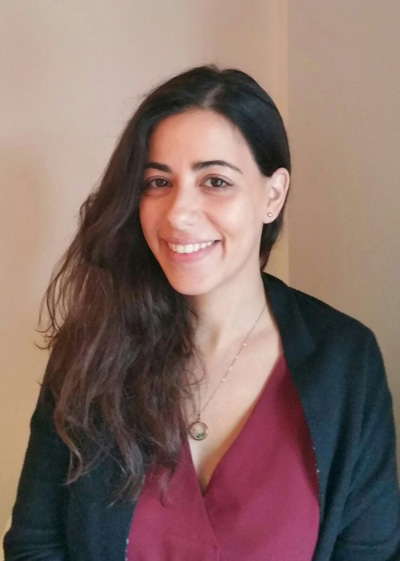
Olivia Volou
As allied health professionals, music therapists attempt to attune to this universal and innate capacity to communicate in order to promote a greater sense of health and well-being for every person.
Music therapy always takes place in a non-judgmental environment. Each person is encouraged to use the space and time of each session in any way they need. This is a place where each response is received as an attempt at communication and the therapist aims to develop each person’s individual abilities. The overall aim of the therapist is to enable each person to achieve change and growth on a personal level through the use of music in a safe environment.
Everyone can participate in music making regardless of disability, ethnicity or age and this is what makes music therapy an effective intervention for people of all ages and abilities. We work with people across the life span.
All of our music therapists are qualified to Masters level in the UK and are registered with the Health and Care Professions Council (HCPC). They are also members of the British Association of Music Therapy (BAMT) and have professional liability insurance.
Assessment:
Prior to the commencement of music therapy work with individuals or groups we will assess clients’ to determine if music therapy will be beneficial for each individual. Information from referral forms will form part of the assessment, alongside meetings with clients, referrers, staff, parents, carers and other professionals working with the client(s) where appropriate. It is important to have as much information as possible prior to the commencement of work in order to establish clinical aims for each individual.
Individual and Group Music therapy sessions
We can provide individual music therapy sessions for those clients who need more intensive one to one support. Individual music therapy sessions usually last between 30-40 minutes. Group music therapy sessions are also available if this is more beneficial for clients at certain settings. We recommend that the group size does not exceed 6 people in order to address the needs of each individual within the group. Group music therapy sessions usually last between 45-60 minutes.
We provide both short-term (8-12 weeks) and long-term interventions, which can last from 24 weeks to a year and beyond. We recommend that the sessions take place on a weekly basis in order to provide a secure time and space for clients and enable the therapeutic relationship to develop. The overall length of a music therapy intervention varies according to the needs and aims of each client. Reports, evaluations and recommendations can be provided at the end of the intervention where appropriate.
Guided Imagery and Music (GIM)
The Helen Bonny Method of Guided Imagery and Music (BMGIM) is a receptive form of Music Therapy.
BMGIM involves listening to specially designed programmes of mostly classical pre-recorded music in a deeply relaxed state. Each carefully selected program evokes imagery in the form of symbols, associations, sensations, feelings or memories. These images are shared with the therapist who guides the session and helps to deepen the process and explore its connection to the music. When the client is ready BMGIM can be a powerful process as the music has the power to move straight to the heart of feelings, experiences or insights
BMGIM can be offered for:
- People experience changes and seeking support and clarity in their lives
- People facing cancer and other life-threatening/limiting conditions
- Anyone seeking support for a bereavement
- Those experiencing anxiety or depression or needing a change in their lives
- For abuse and trauma survivors
- Anyone who is looking for personal development using a more creative approach
- Trainees in creative arts therapies or psychotherapy as part of their personal therapy
- Musicians seeking to explore their relationship to music
Workshops and Presentations
We can provide workshops and presentations to staff at your setting to explain more about music therapy as an allied health profession. This can help staff to understand more about music therapy and whether it can be beneficial to service users at various settings. This will make it easier to make the most appropriate referrals through to music therapy. The workshops can also provide some ideas of how to use music therapeutically within a setting for staff, parents and carers.
All Practitioners at Brighton Consulting rooms work independently and are responsible for ensuring they are insured and, where applicable, are members of approved professional bodies.
If you would like to join our directory of clinicians, please contact us.